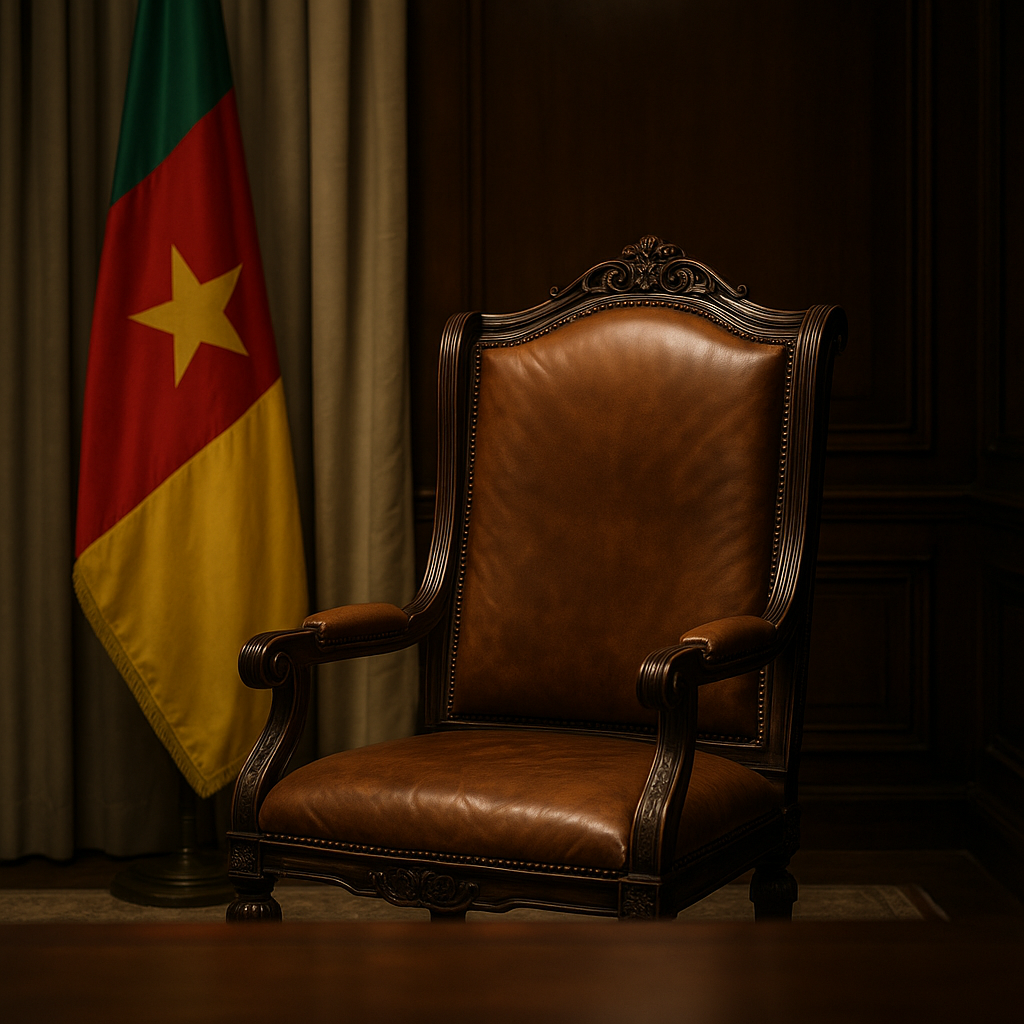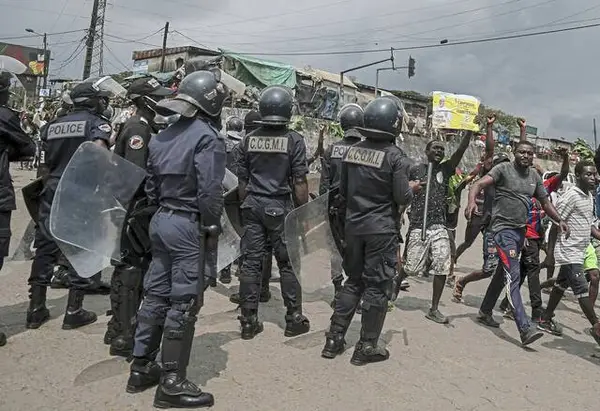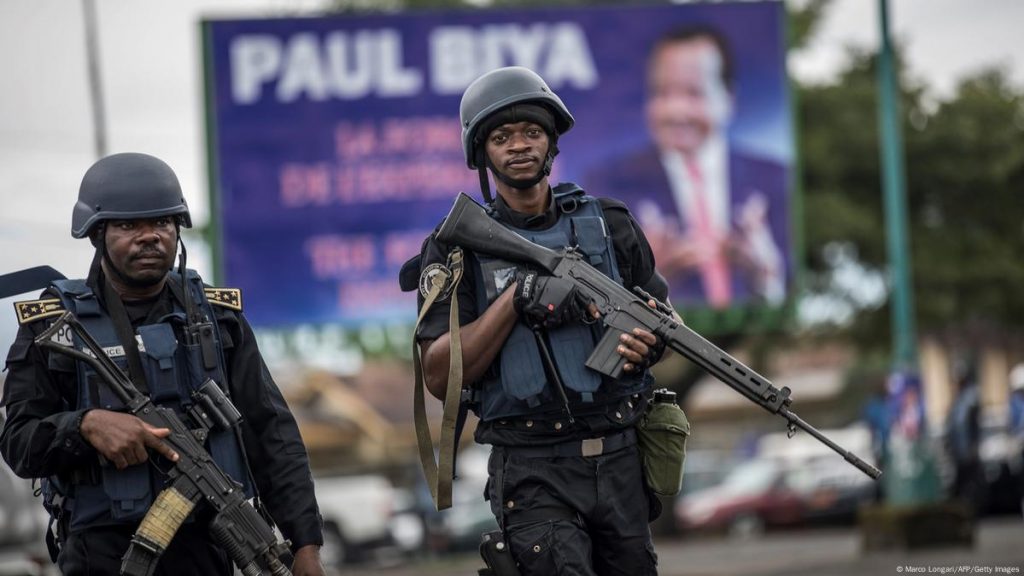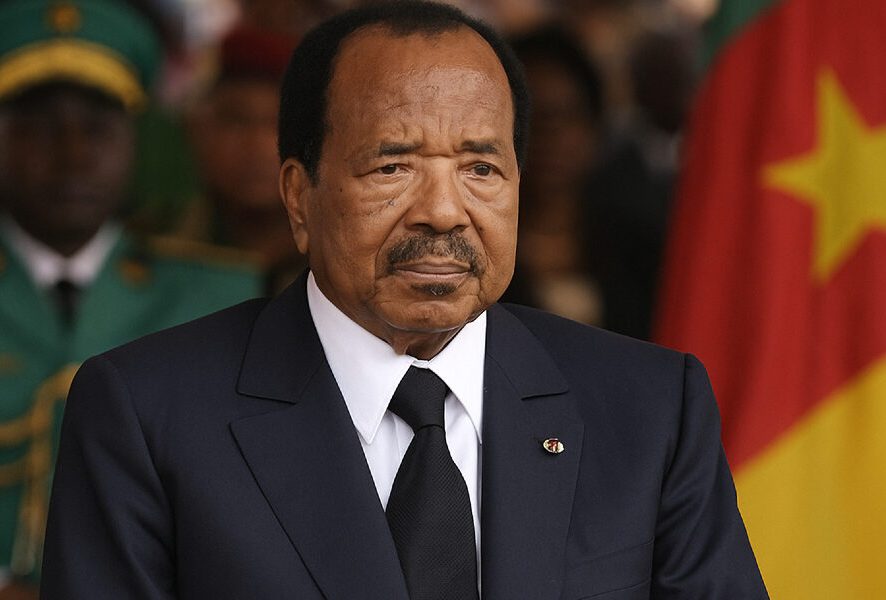Editorial – Uzuri Magazine | October 2025 Edition
By the Editorial Board
In the quiet corridors of Yaoundé’s Unity Palace, history seems to have stopped moving. For over four decades, Cameroon has been led by one leader: Paul Biya — a man whose presence has defined national life since 1982.
Now, at 93, President Biya has once again been declared the winner of the October 2025 election, extending his rule well into a fifth decade — and potentially, until the age of 100.
The declaration, made by Cameroon’s electoral body, has sparked celebration in some quarters and deep skepticism in others. For many, the question isn’t simply who has won, but what this result means for the country’s democracy, its youth, and its future.

A Presidency Without End
Paul Biya’s name has long been synonymous with Cameroonian politics. Since taking power in 1982, he has presided over political transitions, economic cycles, and regional crises. Yet despite his longevity, meaningful change at the highest levels remains elusive.
With a population nearing 30 million — most of whom have never known another president — Cameroon’s generational divide is stark. Biya, now in his tenth decade, leads a nation with a median age of just 18.
His re-election has reignited a national debate: Can a leader shaped by every era since independence still speak to the hopes of a generation born into the digital age?
Protests and the Price of Political Discontent
Following the announcement of provisional results, protests erupted in several cities. Demonstrators questioned the transparency of the electoral process and alleged irregularities in the vote count.
Supporters of opposition candidate Issa Tchiroma Bakary — who had declared himself the winner based on exit polls and local station reports — took to the streets to express outrage.


Local media and human rights organizations reported clashes between demonstrators and security forces, with casualties and injuries in some regions. The full scope remains unclear, but the unrest has heightened public anxiety and drawn concern from civil society groups.
The government has called for calm and warned against what it described as “attempts to destabilize public order.” The African Union and international observers also urged restraint, emphasizing the need for transparency, dialogue, and respect for the rule of law.
The unrest reveals a deeper truth: beneath the surface of political continuity lies a population increasingly impatient for change — not through violence, but through genuine democratic participation.
A Youthful Nation, Aging Power
Nearly 60% of Cameroonians are under the age of 30, yet they are governed by a political class that predates their own generation. The contrast is glaring.
From Yaoundé to Buea, young citizens voice frustration over limited opportunities, chronic unemployment, and a political system where loyalty outweighs merit. The nation’s energy — its music, tech innovation, and entrepreneurial spirit — thrives despite politics, not because of it.
To many, this election felt like a missed opportunity — a moment for renewal that never arrived.
Governance, Transparency, and Trust
Cameroon’s governance challenges are well documented. Organizations like Transparency International and the World Bank consistently highlight corruption, nepotism, and bureaucratic inertia as major obstacles to progress.
Billions of francs are lost each year to mismanagement and illicit financial practices, siphoning funds from critical sectors such as education, healthcare, and infrastructure.
In this climate, young Cameroonians face stark choices: adapt, leave, or resist. Many of the brightest — engineers, doctors, creatives — pursue futures abroad, deepening the brain drain and weakening national development.
The Cost of Stagnation
Cameroon’s economy remains resilient but constrained. Agriculture, the backbone of employment, suffers from underinvestment and poor infrastructure. The manufacturing and tech sectors show promise but are stifled by inconsistent policy and a lack of capital.
Meanwhile, ongoing tensions in the Anglophone regions continue to disrupt local economies and fracture national unity. Calls for reform and reconciliation go unanswered, reinforcing division and resentment.
The political continuity that once promised stability now feels like inertia — a system unable or unwilling to evolve.
A Question for the Future
As President Biya begins yet another term, the country faces a defining question: How long can a nation this young, vibrant, and ambitious remain tethered to a leadership model rooted in the past?
Longevity in leadership can offer stability. But democracy demands more — participation, accountability, and the capacity to renew.
Cameroon’s challenge isn’t whether Biya can keep leading. It’s whether the country can move forward while waiting for change that never comes.
The Hope That Endures
Yet despite the frustration, hope persists. Across campuses, neighborhoods, and digital platforms, Cameroonian youth are organizing, creating, and speaking out. Through entrepreneurship, activism, and art, they are redefining citizenship.
As one student in Douala told Uzuri Magazine:
“We’re not against the old; we’re just ready for the new.”
That readiness — patient, creative, and bold — could be the true force that shapes Cameroon’s next chapter.
President Paul Biya’s enduring presence in Cameroonian politics is both a testament to his resilience and a reflection of the nation’s political stagnation. His legacy will not be measured by how long he stayed in power, but by whether he prepared the country for what comes next.
Cameroon’s future belongs to its people — especially its youth — who continue to dream of a nation where leadership is earned through vision, not tenure.
External Sources:
- Transparency International – Cameroon Corruption Overview
- Elections Cameroon (ELECAM) – Official Portal

